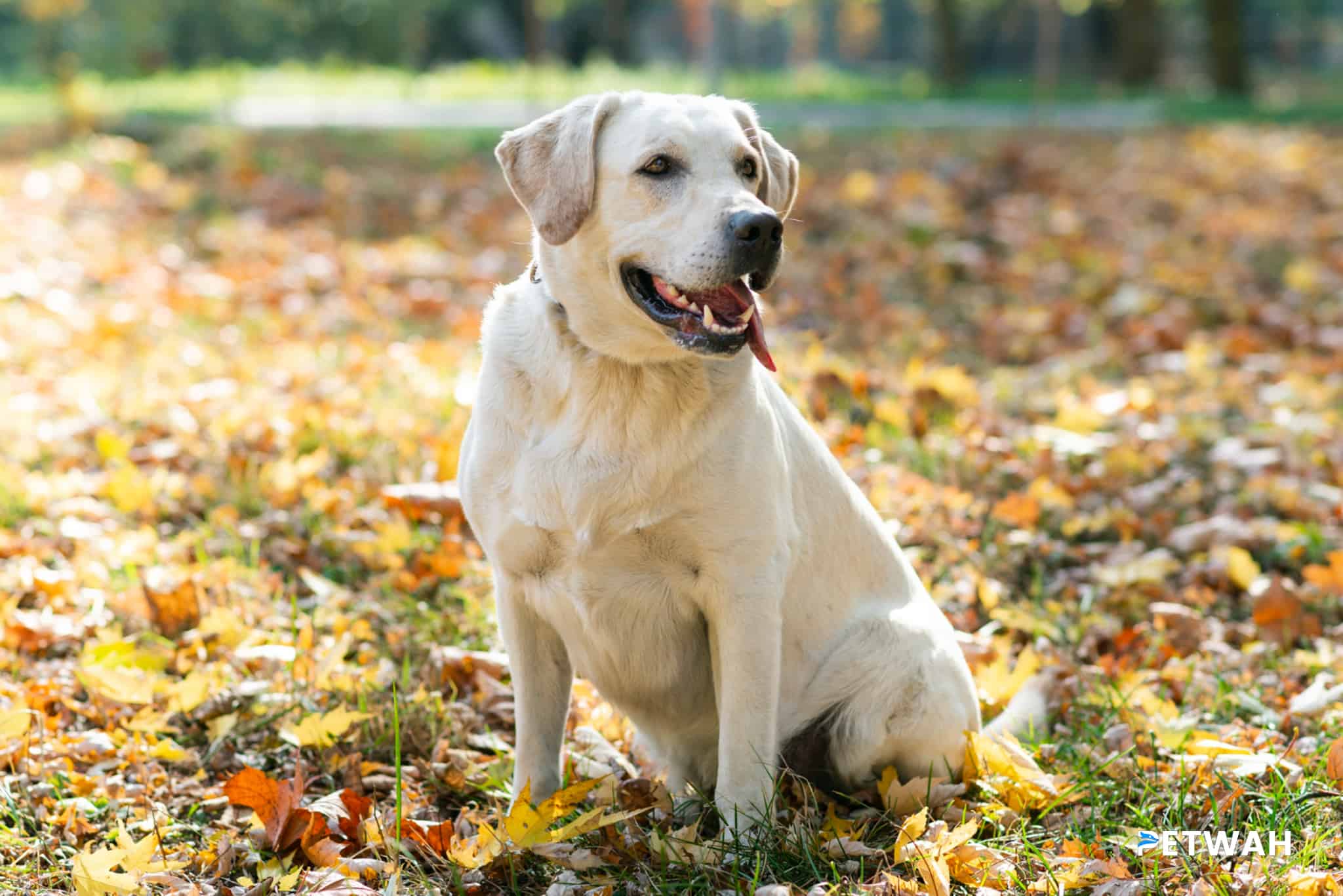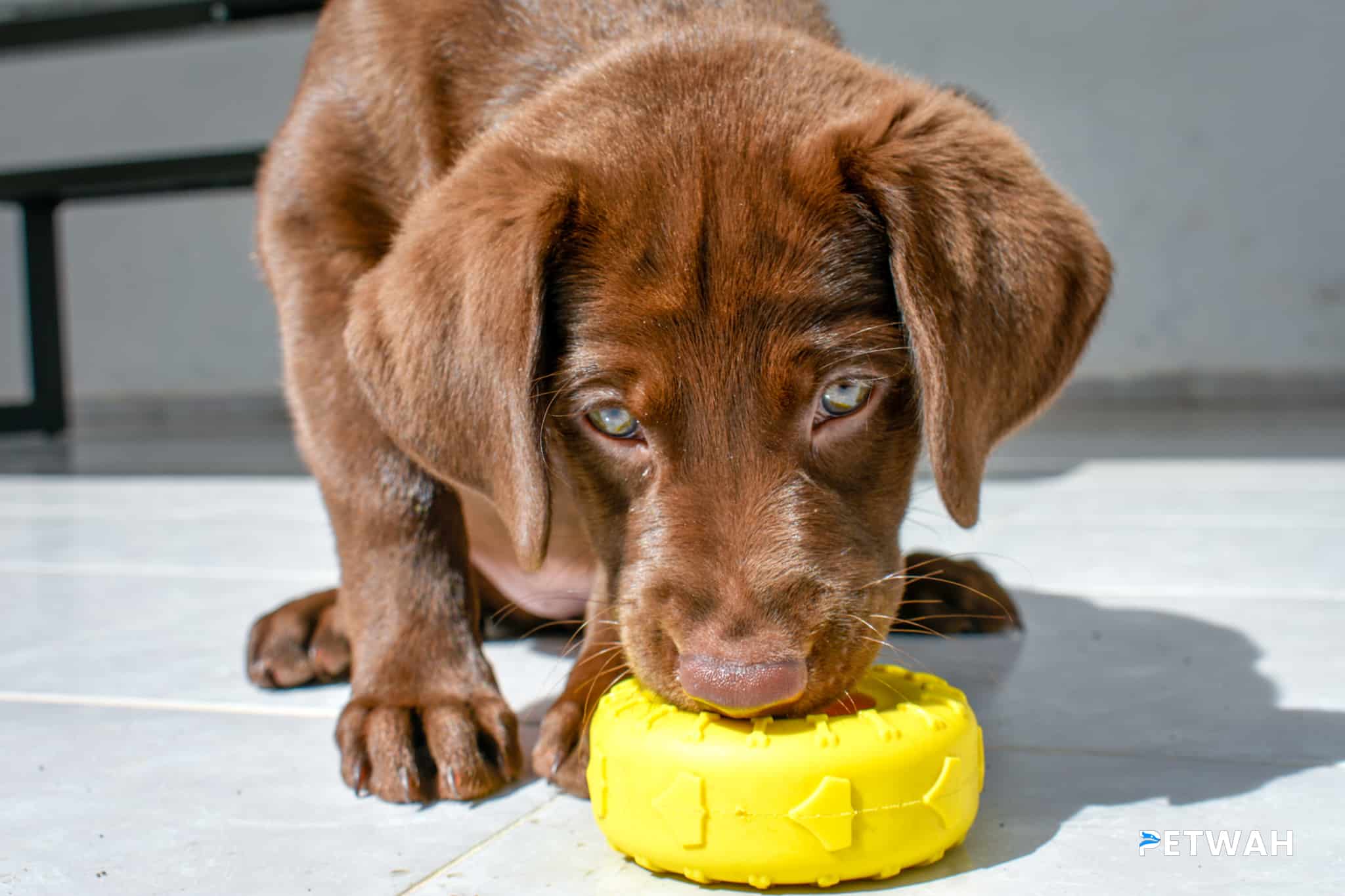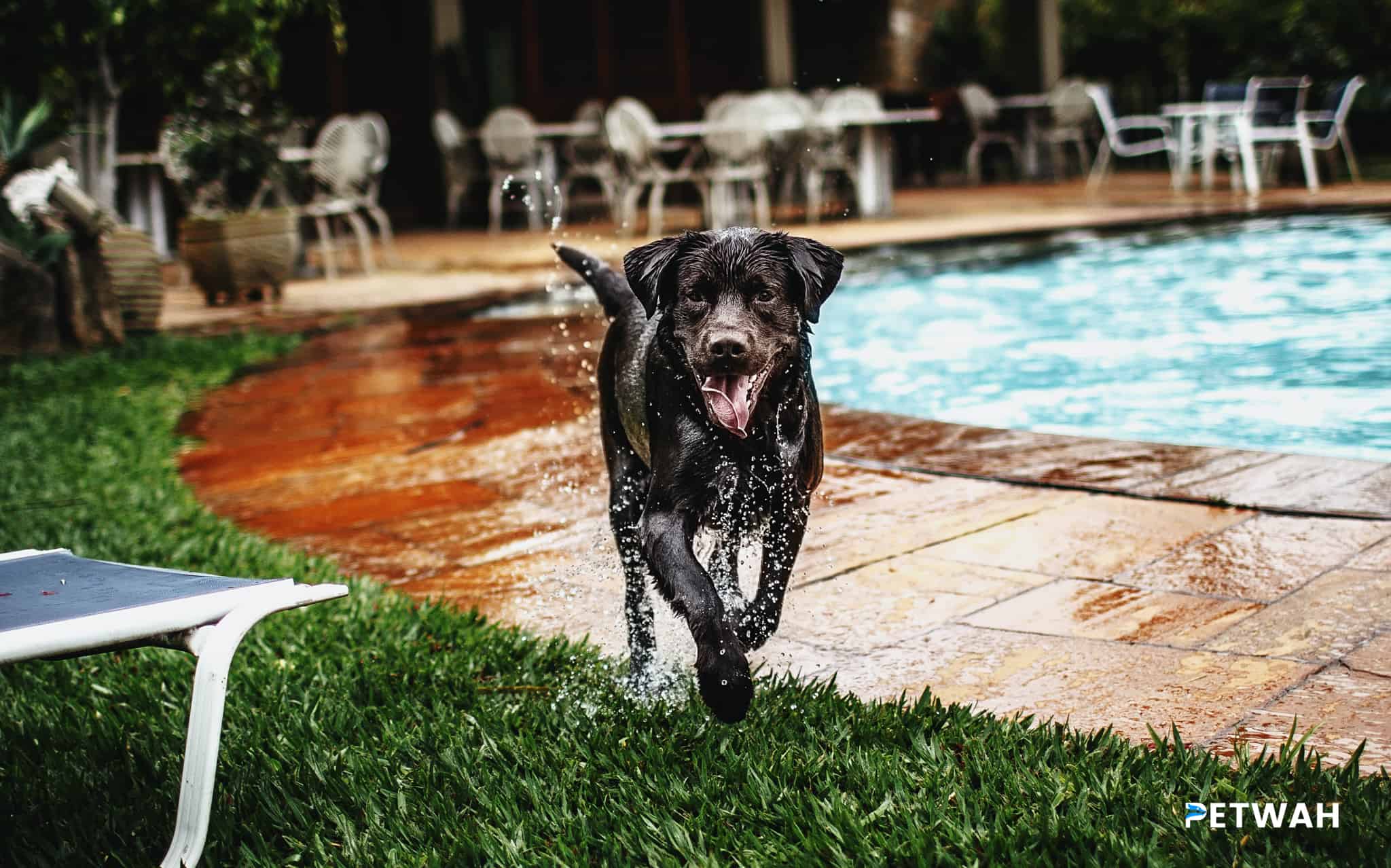Labrador puppies are known for their playful and friendly nature. However, like any other puppy, they can also exhibit certain behavioral issues. Addressing these issues early on is crucial for their development and well-being. In this article, we will explore some common behavioral issues that may arise in Labrador puppies and provide tips on how to address them effectively.
Introduction
Labrador puppies are adorable, but they can also present their fair share of challenges. Understanding common behavioral issues and learning how to address them can help ensure a harmonious relationship with your furry friend. Let’s dive into some common issues and explore the ways to tackle them.

1. Separation Anxiety
Labrador puppies can often experience separation anxiety, which is characterized by excessive distress when they are left alone. This can manifest in behaviors such as excessive barking, destructive chewing, or soiling the house. To manage separation anxiety in Labrador puppies, consider the following:
– Gradually introduce alone time: Start by leaving your puppy alone for short periods and gradually increase the duration.
– Create a safe space: Provide a comfortable and secure area where your puppy can retreat to when alone.
– Leave soothing toys or treats: Provide toys or treats that can keep your puppy occupied and distracted.
For more information on separation anxiety in dogs, you can visit the ASPCA’s guide on the topic.
2. Biting and Chewing
Puppies explore the world through their mouths, and Labradors are no exception. However, excessive biting and chewing can be problematic. Here are some ways to address this issue:
– Provide appropriate chew toys: Offer a variety of chew toys to redirect your puppy’s biting behavior towards acceptable objects.
– Positive reinforcement: Reward your puppy when they exhibit appropriate chewing behavior.
– Teach bite inhibition: Gently discourage biting by redirecting attention and providing positive reinforcement when your puppy exhibits gentler mouthing.
For additional tips on managing biting and chewing in Labrador puppies, the American Kennel Club provides useful information.
3. Excessive Barking
Excessive barking can be a common behavioral issue in Labrador puppies. It’s important to address this behavior early on to prevent it from becoming a habit. Here are some strategies to tackle excessive barking:
– Identify triggers: Determine what causes your puppy to bark excessively and work on desensitizing them to those triggers gradually.
– Positive distraction: Provide your puppy with alternative activities or toys to redirect their focus and attention away from barking.
– Consistency in training: Establish clear rules and consistently reinforce them through positive reinforcement techniques.
For more information on managing excessive barking, the Humane Society provides valuable insights.
4. Jumping on People
Labrador puppies are full of energy and exuberance, often resulting in a habit of jumping on people. While it may seem harmless, this behavior can become problematic as your puppy grows. Here are some methods to discourage jumping:
– Ignore and redirect: Avoid giving attention or rewards when your puppy jumps, and instead redirect their attention to a more appropriate behavior.
– Train with basic commands: Teach your puppy commands such as “sit” and “stay” to redirect their energy and provide an alternative behavior to jumping.
– Encourage calm greetings: Reinforce calm behavior by rewarding your puppy when they greet people calmly and without jumping.
The American Society for the Prevention of Cruelty to Animals (ASPCA) offers helpful tips on curbing jumping behaviors.
5. House Training Issues
Accidents can happen during the house training process. To address house training issues in Labrador puppies:
– Establish a routine: Create a consistent schedule for meal times, outdoor bathroom breaks, and confinement periods.
– Provide frequent opportunities for bathroom breaks: Take your puppy outside regularly, especially after meals, naps, or playtime.
– Use positive reinforcement: Reward your puppy when they eliminate in the appropriate spot, either with treats or verbal praise.
For more guidance on house training, the Labrador Training HQ provides comprehensive resources.
FAQs
1. How long does it take to house train a Labrador puppy?
House training time can vary from puppy to puppy. On average, it can take anywhere from a few weeks to a few months for a Labrador puppy to become fully house trained.
2. Are Labrador puppies prone to separation anxiety?
Labrador puppies, like many other breeds, can be prone to separation anxiety. However, with proper training and gradual exposure, separation anxiety can be managed effectively.
3. Why do Labrador puppies bite so much?
Labrador puppies bite and chew a lot as part of their natural exploration and teething process. With proper redirection and training, this behavior can be modified to appropriate chewing habits.
4. Can excessive barking in Labrador puppies be a sign of a problem?
Excessive barking in Labrador puppies can be a sign of stress, boredom, or anxiety. It’s important to determine the underlying cause and address it accordingly.
5. When should I start training my Labrador puppy?
Training should start as early as possible. Labrador puppies have a natural enthusiasm for learning, and early training can help establish good behavior patterns and communication between you and your puppy.
Conclusion
Labrador puppies may exhibit certain behavioral issues, but with patience, consistency, and positive training techniques, these issues can be addressed effectively. Understanding and addressing separation anxiety, biting and chewing, excessive barking, jumping on people, and house training issues are key to helping your Labrador puppy grow into a well-behaved and happy adult dog. Remember to always consult professional trainers or veterinarians if you need additional guidance or support in addressing behavioral issues.
If you’re looking for high-quality pet supplies and expert advice, visit PetWah, a leading online pet store offering a wide range of products to cater to all your pet’s needs. Start your fur baby’s journey to a happy and healthy life today!
FAQs
Q1: How long does it take to house train a Labrador puppy?
Ans: House training time can vary from puppy to puppy. On average, it can take anywhere from a few weeks to a few months for a Labrador puppy to become fully house trained.
Q2: Are Labrador puppies prone to separation anxiety?
Ans: Labrador puppies, like many other breeds, can be prone to separation anxiety. However, with proper training and gradual exposure, separation anxiety can be managed effectively.
Q3: Why do Labrador puppies bite so much?
Ans: Labrador puppies bite and chew a lot as part of their natural exploration and teething process. With proper redirection and training, this behavior can be modified to appropriate chewing habits.
Q4: Can excessive barking in Labrador puppies be a sign of a problem?
Ans: Excessive barking in Labrador puppies can be a sign of stress, boredom, or anxiety. It’s important to determine the underlying cause and address it accordingly.
Q5: When should I start training my Labrador puppy?
Ans: Training should start as early as possible. Labrador puppies have a natural enthusiasm for learning, and early training can help establish good behavior patterns and communication between you and your puppy.
PetWah is the go-to online store for all your pet’s needs, from food and treats to toys and training supplies. Visit petwah.com and discover a wide range of high-quality products to keep your furry friend happy and healthy.




.jpg)
%20-%20Copy.jpg)
%20-%20Copy.jpg)
.jpg)